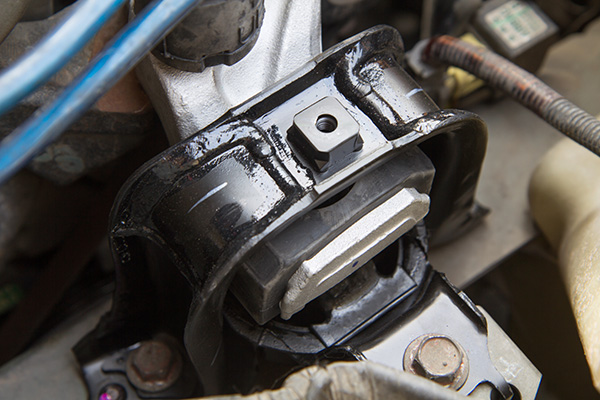
Your car’s engine relies on small but essential parts to stay securely in place. These parts are known as engine mounts, and their primary role is to hold the engine steady while reducing vibrations and absorbing shocks. Over time, engine mounts can wear out, leading to various issues that affect the performance and comfort of your vehicle. So, how do you know when your engine mounts are worn out, and what should you do about it?
What Are Engine Mounts and Why Do They Matter
Engine mounts are brackets that secure the engine to the car’s chassis, helping to keep everything aligned and stable. Most engine mounts are made with a combination of metal and rubber components. The metal provides the strength needed to hold the engine in place, while the rubber helps absorb vibrations. Without functional engine mounts, your engine could move excessively, causing vibrations, noise, and even damage to other car components.
Worn-out engine mounts can create a domino effect of problems, so it’s important to address the issue early on. But first, you need to know how to identify if your engine mounts are worn.
Signs of Worn-Out Engine Mounts
1. Unusual Vibrations
One of the most noticeable symptoms of failing engine mounts is increased vibrations. Normally, the rubber in the mount absorbs the engine’s vibrations, but when the mounts wear out, the vibrations are no longer contained. You might feel these shakes when idling or accelerating, especially if you drive a manual transmission car.
2. Clunking Noises
Hearing a “clunk” or “bang” sound when you accelerate, brake, or drive over a bump? This noise could indicate that your engine is moving excessively due to a worn or broken mount. The clunking happens when the engine shifts positions and knocks against the frame or other components.
3. Engine Misalignment
Pop the hood and take a look at your engine. Does it seem like it’s sitting at an odd angle or slightly off-center? Misalignment is a clear sign of engine mount wear. When the mounts fail, they can no longer keep the engine in its proper place, leading to an uneven tilt.
4. Increased Noise in the Cabin
When engine mounts wear out, you may notice a lot more noise in the cabin, especially when accelerating or driving over rough roads. This is because the mounts can no longer dampen the engine’s movements, allowing more noise to filter through the vehicle.
5. Engine Movement When Shifting
If you drive a manual or automatic car, you might feel the engine move or jerk when shifting gears. This is a strong sign that the engine mounts are no longer functioning properly. A small amount of movement is normal, but excessive movement can indicate a bigger issue with your mounts.
Can You Fix Engine Mounts Yourself
Replacing engine mounts is not a DIY job. While the process may seem straightforward—removing the old mount and installing a new one—it requires lifting the engine to gain access. Most car owners lack the specialized equipment necessary to perform this. Besides, engine mounts are directly related to the structural integrity of your vehicle. If improperly installed, they could cause even more damage down the road.
Therefore, it’s highly recommended to have a professional technician inspect and replace your engine mounts. This ensures the repair is done correctly, and it will prevent further damage to your engine and other parts of your vehicle.
How to Prevent Engine Mount Wear
While engine mounts will inevitably wear out over time, there are steps you can take to extend their lifespan:
- Avoid aggressive driving: Rapid acceleration and sudden braking can put additional stress on the engine mounts.
- Check for fluid leaks: Many engine mounts degrade faster if exposed to leaking engine oil or other fluids. Address leaks immediately to prevent this.
- Regular maintenance:Have your mounts inspected during routine service appointments. Catching wear early can save you from costly repairs.
What Happens If You Ignore Worn-Out Engine Mounts
Driving with worn-out engine mounts can lead to severe consequences. Beyond just the uncomfortable vibrations and noises, failing engine mounts can cause engine damage. If the engine shifts too much, it could damage other components like the exhaust system, transmission, or even wiring. Long-term, the increased wear on these components could lead to costly repairs or even engine failure.
For your safety and the longevity of your vehicle, it’s essential to address any signs of worn engine mounts as soon as possible.
Notice unusual vibrations or noise? Don’t ignore the signs of failing engine mounts. Bring your vehicle to Euro Car Tech for a quick inspection and professional repair.